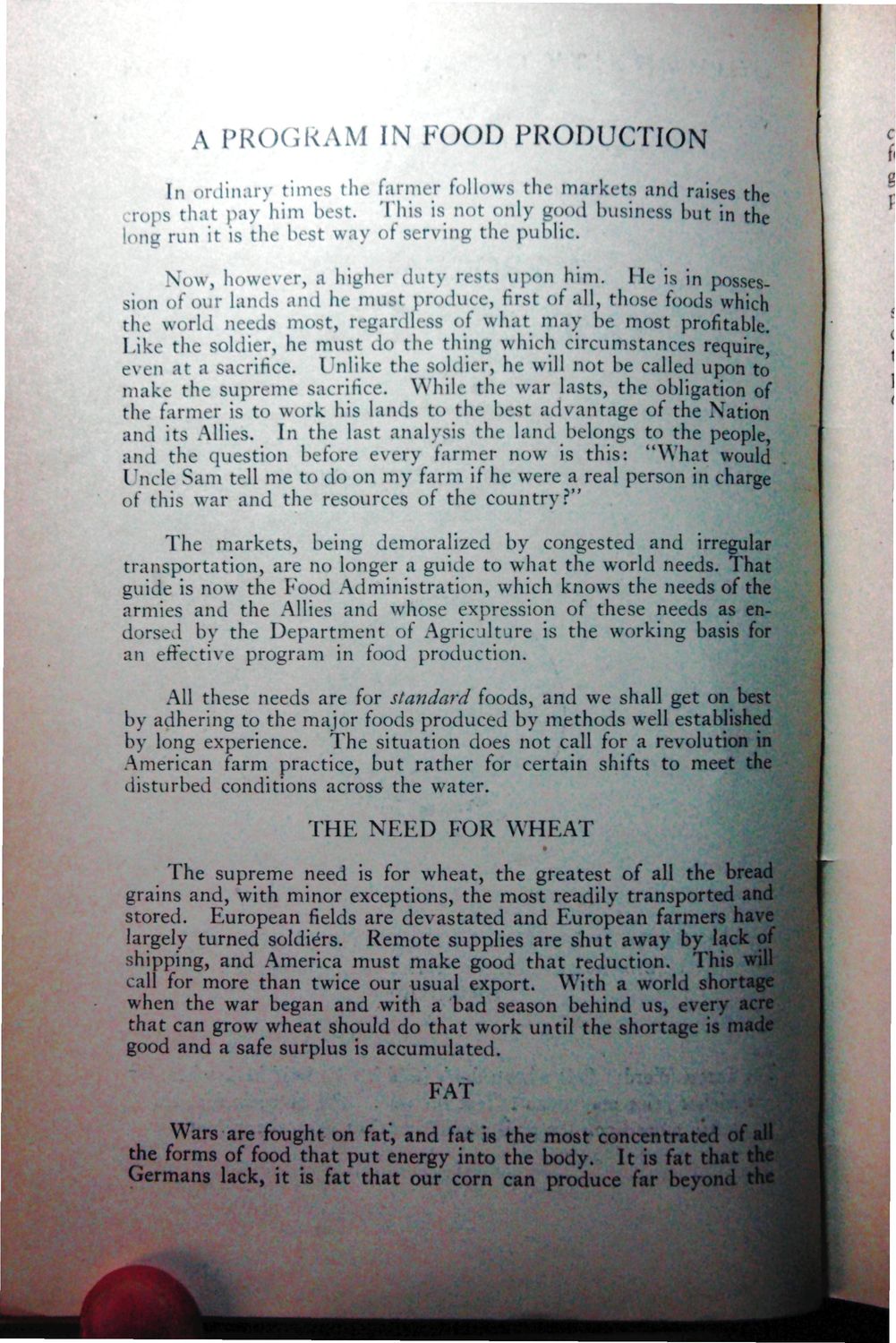| |
| |
Caption: War Publications - WWI Compilation 1923 - Article 5
This is a reduced-resolution page image for fast online browsing.

EXTRACTED TEXT FROM PAGE:
A PROGRAM IN FOOD PRODUCTION In ordinary times the farmer follows the markets and raises the rops that pay him host. This is not only good business hut in the >ng run it is the best way of serving the public. Now, however, a higher duty rests upon him. lie is in possesion of our lands and he must produce, first of all, those foods which the world needs most, regardless of what may be most profitable. l.ik< the soldier, he must do the thing which circumstances require, even at a sacrifice. Unlike the soldier, he will not be called upon to make the supreme sacrifice. While the war lasts, the obligation of the farmer is to work his lands to the best advantage of the Nation and its Allies. In the last analysis the land belongs to the people, ami the question before every farmer now is this: "What would l/ncle Sam tell me to do on my farm if he were a real person in charge of this war and the resources of the country?" The markets, being demoralized by congested and irregular transportation, are no longer a guide to what the world needs. That guide is now the Food Administration, which knows the needs of the armies and the Allies and whose expression of these needs as endorsed by the Department of Agriculture is the working basis for an effective program in food production. All these needs are for standard foods, and we shall get on best by adhering to the major foods produced by methods well established by long experience. The situation does not call for a revolution in American farm practice, but rather for certain shifts to meet the disturbed conditions across the water. T H E N E E D FOR W H E A T • j The supreme need is for wheat, the greatest of all the bread grains and, with minor exceptions, the most readily transported and stored. European fields are devastated and European farmers have largely turned soldiers. Remote supplies are shut away by lack of shipping, and America must make good that reduction. This will call for more than twice our usual export. With a world shortage when the war began and with a bad season behind us, every acre that can grow wheat should do that work until the shortage is made good and a safe surplus is accumulated. * FAT Wars are fought on fat, and fat is the most concentrated of all the forms of food that put energy into the body. It is fat that the Germans lack, it is fat that our corn can produce far beyond the
| |